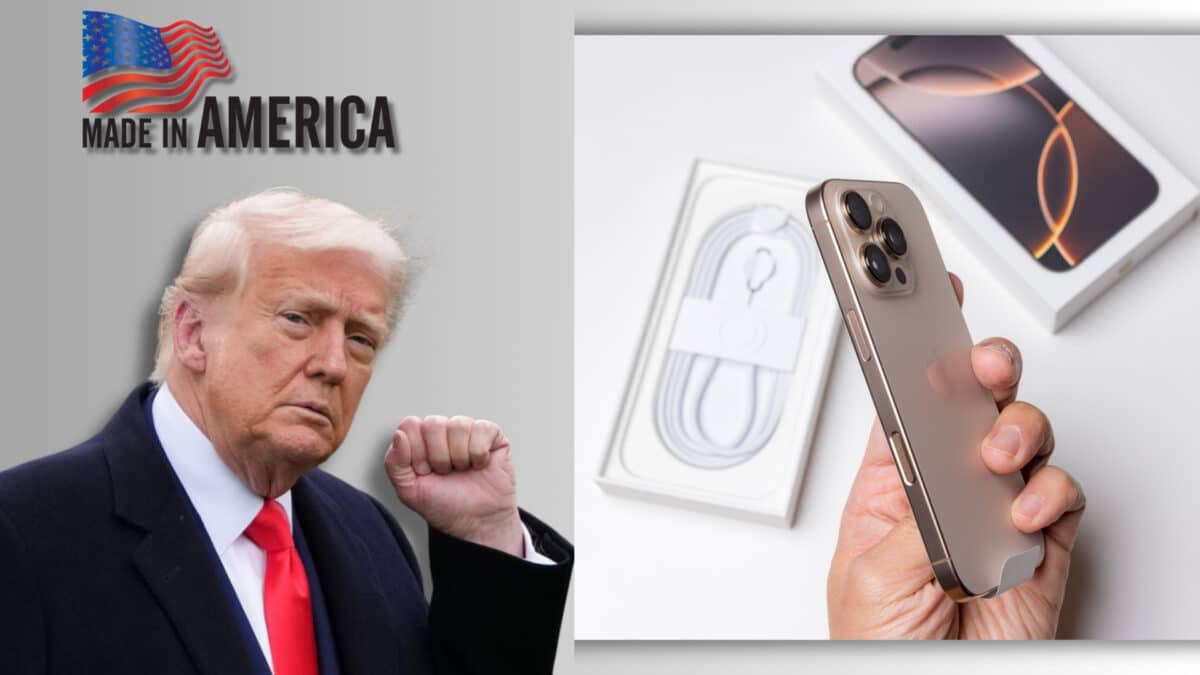Former U.S. President Donald Trump has issued a new ultimatum to Apple, demanding that the company manufacture iPhones domestically or face a 25% tariff on foreign-made devices. The warning, made via Truth Social, comes amid a broader push by Trump to pressure major corporations and foreign governments into reshoring production. He cited previous conversations with Apple CEO Tim Cook, reiterating his position that devices sold in the United States should also be made there.
Trump’s threat follows similar rhetoric targeting the European Union, with plans to impose a 50% tariff on EU exports to the U.S. starting June 1. In Apple’s case, Trump emphasized that manufacturing in countries like India, Vietnam, and China is no longer acceptable under his vision for American economic independence. These remarks signal renewed attention to protectionist trade policies as the former president campaigns for a return to office.
Apple’s Global Supply Chain Complicates Relocation
Apple currently relies heavily on a supply chain anchored in Asia, with an estimated 80% of iPhones produced by Chinese manufacturers, according to the New York Times. Analysts say relocating production to the United States would be logistically complex and cost-prohibitive. Wayne Lam, of TechInsights, noted that moving the entire supply chain would more than double the price of an iPhone, potentially pushing retail prices beyond $2,000 USD.
In an interview with Business Insider, Dan Ives, an analyst at Wedbush Securities, estimated that a fully U.S.-made iPhone could cost up to $3,500 USD, due to higher labor costs, the need for specialized infrastructure, and a shortage of skilled manufacturing workers. He also projected a five- to ten-year timeline to build domestic production capabilities from scratch. These constraints present a major obstacle to realizing the manufacturing shift proposed by Trump.
Technical and Economic Challenges to US Production
Experts say that producing iPhones in the U.S. would require not only new automation technologies but also large-scale investments in machinery and workforce training. According to Lam, the American labor market lacks the scale and specialization of its Chinese counterpart, making it difficult to replicate Apple’s current assembly efficiency domestically. He described the proposal as “not economically viable in the short term.”
This assessment is echoed by Ives, who called the idea a “fairy tale” in terms of practical feasibility. Apple would have to overtake multiple logistical hurdles, including sourcing components, establishing factories, and coordinating supply chains that are deeply embedded across Asia. Without existing infrastructure, the cost and time commitment would be substantial, even for a company of Apple’s scale.
🚨TRUMP TO APPLE: Build iPhones in the U.S. or Face 25% Tariff. pic.twitter.com/nhhDAiePjR
— Heba✯ (@Hebaie) May 23, 2025
Broader Implications for Trade and Tech Policy
Trump’s position highlights a wider tension between U.S. protectionist policies and the globalized nature of tech manufacturing. While intended to strengthen domestic industry, such measures may run counter to the operational realities of multinational firms. Analysts note that Apple, like many tech companies, depends on international supply chains to maintain product affordability and meet demand at scale.
The timing of Trump’s remarks also coincides with Apple executives projecting a future beyond traditional hardware. During recent testimony in the Google Search antitrust trial, Eddy Cue, Apple’s senior vice president of services, suggested that “you may not need an iPhone in ten years,” pointing to advancements in artificial intelligence and alternative platforms. This longer-term vision further complicates current calls to restructure manufacturing for devices that may soon become obsolete.










